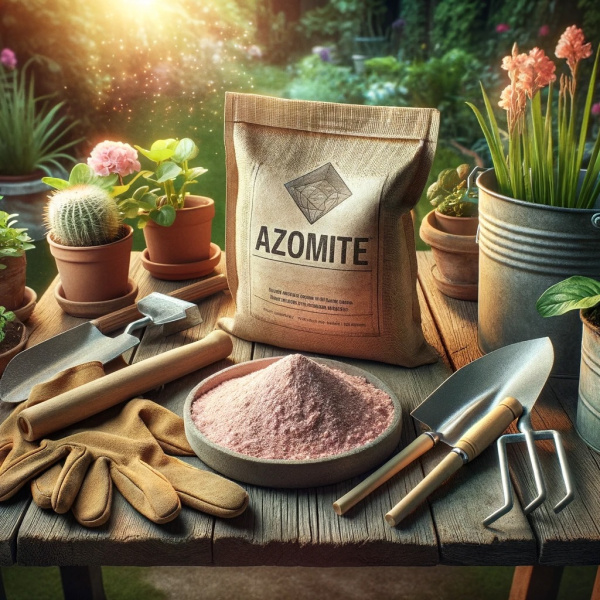
Azomite Introduction
Azomite, a natural mineral product mined from ancient volcanic ash deposits, stands out as a remarkable soil amendment for enhancing plant growth and soil vitality.
Rich in a broad spectrum of trace minerals, Azomite has been used by gardeners and farmers to replenish essential nutrients in the soil, promoting healthier and more robust plant development.
This guide will explore the benefits of Azomite, its nutritional profile, application methods, suitability for various plants and soil types, and its impact on environmental sustainability.
Whether you're aiming to boost your vegetable yield, invigorate your flower beds, or start an organic gardening project, Azomite can play a pivotal role in achieving your gardening goals.

Azomite Key Benefits
Azomite is celebrated for its ability to improve plant health and soil quality. The key benefits include:
- Mineral Replenishment: Azomite replenishes essential trace minerals that are often depleted in modern soils, supporting plant nutrition and overall health.
- Enhanced Growth: Plants supplied with a full spectrum of minerals exhibit improved growth, yield, and resistance to pests and diseases.
- Soil Vitality: By adding Azomite to the soil, you can enhance soil structure, aeration, and water retention, benefiting the entire garden ecosystem.

Azomite Nutritional Profile
Azomite's unique selling point is its rich mineral content, boasting over 70 trace minerals and elements.
This diversity is crucial for plant growth, as many of these elements play key roles in cellular processes, enzyme functions, and as catalysts for growth and development.
Regular application of Azomite ensures that plants have access to rare but essential nutrients like boron, copper, manganese, and zinc, leading to more nutritious and flavorful fruits and vegetables.

How to Use Azomite
Applying Azomite is simple and can be adjusted to suit various gardening practices:
- For Gardens and Raised Beds: Mix Azomite into the top 6-12 inches of soil at a rate of 2-4 pounds per 100 square feet before planting. This can be repeated annually or as needed.
- For Potted Plants: Incorporate Azomite into your potting mix at a rate of 1 teaspoon per gallon of soil.
- As a Foliar Spray: Dissolve Azomite powder in water (about 1 teaspoon per gallon) and spray directly onto plant leaves for a quick nutrient boost.

Ideal Plants and Soil Types
Azomite is versatile and beneficial for almost all plants and soil types. Its general application improves nutrient availability in vegetable gardens, flower beds, and for fruit trees, enhancing plant vigor and crop quality.
It's particularly valuable in soils that are nutrient-deficient or have been intensively cultivated, helping to restore mineral balance and promote healthy soil biology.

Sustainability and Environmental Impact
Utilizing Azomite as a soil amendment aligns with sustainable gardening and farming practices.
By providing a natural source of minerals, it reduces the need for synthetic fertilizers, decreasing the environmental footprint of gardening.
Azomite is mined with consideration for environmental impact, and its use supports the regeneration of soil health and biodiversity.

Azomite Tips and Tricks
To maximize the benefits of Azomite in your garden, consider the following tips:
- Test Your Soil: Knowing your soil's current nutrient makeup can help you tailor the Azomite application to your garden's specific needs. We recommend this soil testing kit.
- Combine with Compost: Mixing Azomite with organic compost enhances its effectiveness by facilitating better mineral absorption by plants.
- Regular Application: Make Azomite a regular part of your gardening routine to continuously replenish trace minerals and maintain soil health.

Azomite Conclusion
Azomite offers an easy and natural way to boost your garden's productivity and plant health through the power of minerals.
By integrating Azomite into your gardening practices, you can ensure your plants thrive and your soil remains vibrant and fertile.
We invite you to visit our shop and try Azomite. Let's work together to create lush, productive gardens that are as healthy as they are beautiful.


